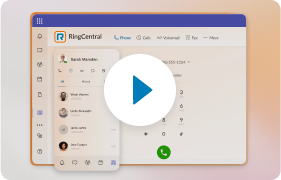Call center agents are among your frontline employees who impact how customers feel about your brand. Quality agents make customers feel comfortable, try to solve their problems, and improve the overall experience. Low-quality ones do the opposite and make you lose customers, which negatively affects your bottom line.
The quality of your call center service can have a big impact on your bottom line. According to research, improving customer experience has increased sales revenues by 2 to 7%, demonstrating how crucial it is to hire people with the right call center skills.
But what are these skills, and how can you spot them? We answer these questions in the following sections.
Essential skills for call center agents
To meet and surpass customer expectations, here are nine skills to consider when hiring successful agents:
1. Technical proficiency

Free-to-use-image-from-Pexels
This is perhaps the most important call center skill because, without it, no work can be done. Agents depend on several technologies to do their jobs effectively. As a result, having strong technical skills, including competence with different software, business VPN solutions, and systems, is essential.
They need to be knowledgeable about call center management tools, telephony equipment, and CRM (customer relationship management) systems.
Some agents may also need to use chat services, business applications, and knowledge bases. When the inevitable technical issues arise, they should be able to troubleshoot basic problems and outages to prevent lengthy downtimes in customer service.
One way to evaluate the technical skills of potential hires is to research what tools they have used in the past. If the candidates are recent graduates or industry newbies, see how they navigate an easy call center software. Both these will tell you how the candidate can adapt to the tools you use for your calling campaigns.
Another option to determine whether a candidate is tech savvy is to employ AI recruitment tools. These technologies use automation to simplify and enhance various recruitment tasks, like skills assessment. For example, AI tools can measure a candidate’s typing skills and accuracy, which are crucial for note-taking during calls.
2. Knowledge retention
Call center agents must be able to retain information to deliver exceptional customer service. This can include product information, escalation protocols, frequently asked questions, or even problems your customer is calling with.
If agents have to ask callers to constantly repeat key information they’ve already provided, it leads to a poor experience. When that happens, customers won’t be too keen to call and may move to competitors.
Fortunately, you can easily spot this. During trial call sessions, provide the candidate with plenty of information about the pretend caller, their problems, and so on. Then, see how well the candidate absorbs and uses that information throughout the conversation.
A successful candidate will retain most of the information and know how to separate crucial details from less important ones.
3. Attention to detail
Paying attention to details can be the difference between good and great customer service. When agents are meticulous, they can identify less obvious issues and resolve them promptly.
For example, a detail-oriented agent will notice that a customer has multiple inquiries across various channels. Then, they will consolidate them into a single comprehensive response, providing a seamless experience.
At a time when customer loyalty is fragile, this level of personalization can strengthen your retention efforts.
More than this, with 73% of customers expecting companies to understand their unique needs, the ideal agent needs to treat each case separately and with the attention it deserves for you to remain competitive.
Image-sourced-from-emarketer.com
So, how do you gauge these skills when hiring?
Start with the candidate’s resume. If it contains too many typos and errors, they’re probably not the one. The cover letter can also tell you whether a candidate is meticulous or not. Check if it has been tailored to your company and the job. If it has, then you know the candidate pays attention and can translate the skills to calls.
4. Active listening
Having active listening skills goes beyond correctly capturing and confirming a customer’s phone number and other details. It involves understanding the sentiments behind a customer’s words and providing the right solution.
For example, a potential customer might say, “I don’t think I’m ready to move forward right now.” If your agent is actively listening, they will understand that the words “think” and “right now” mean that the caller isn’t ruling out a purchase. They just need more assurances.
This is a tricky one to evaluate when hiring because a candidate’s listening skills can vary by situation. For instance, a candidate under pressure to meet deadlines may listen poorly to one who isn’t under the same stress.
A solution to this is observing their body language during interviews and how easily they grasp issues.
5. Effective communication skills
Contact center agents must be able to express themselves clearly. Properly speaking and a good vocabulary are only valuable if they resolve customer issues. In other words, if the agent has to use local slang to get their message across, that’s what they should do.
Effective communication isn’t limited to talking to customers. Agents should also be able to communicate with the rest of their team and other departments. This is particularly crucial in a virtual call center setting, where agents are based across multiple locations and communication is key to ensure everything runs smoothly.
To assess this, see how a candidate delivers information during your mock call. In addition, evaluate the quality of a prospective call center agent’s follow-up emails or texts.
6. Strong problem-solving skills

The bulk of a call center agent’s responsibilities are managing complaints and dealing with unhappy customers. So, agents must know how to generate solutions promptly and defuse conflicts before they turn into more challenging situations.
Solid problem-solving skills also enable agents to think on their feet in tricky situations. For example, if a customer asks a question that isn’t detailed in the script, skilled agents can quickly come up with a creative answer. Or they don’t waste time connecting the caller with the direct phone number for a department that will be able to help.
Either way, they provide your customers with a first-call resolution. This, in turn, improves customer satisfaction and boosts the efficiency of your overall call center.
When hiring, you can gauge this skill during your mock call sessions. Give the candidate an off-script situation and evaluate their response.
See if the candidate can think outside the box and adapt.
7. Organizational skills
It is essential for call center agents to be organized because they often have to manage multiple tasks. For example, they may have to take notes and navigate the CRM while on a call—and these tasks must be performed accurately.
An effective way to analyze a candidate’s organizational skills is to set up a mock call. During this call, pay attention to how a candidate records information and the type of information.
A successful call center agent will automatically ask you about your note-taking tool. Even after the call, you will see the agent making notes to ensure no information is lost.
If they are industry newbies, they may use a pen and paper to jot down key information from the call. That is also okay because it shows that they have organizational skills that can be adopted in the call center.
8. Empathy
The nature of a call center job means agents will encounter worried, depressed, rude, or unhappy customers. At each point, agents must have the ability to understand and share those feelings—this is called empathy. It is one of the most crucial soft skills for call center agents.
When agents are empathetic, they show customers that they really care.
While it is not always possible for agents to solve a customer’s problem, showing empathy helps customers feel that their concerns matter–whether it’s by providing a toll-free number so they can easily call again to resolve the issue or it’s just taking the time to listen and pass on their complaint.
Ultimately, assuring the customer that they are valued by your company.
The best way to assess a candidate’s empathetic skills is during the mock call session of the interview. Empathetic candidates will make the customer feel heard and have a positive call experience. Get feedback from the trial customer; if they had an overall good feeling after the call, it is likely the candidate handled the call with empathy.
9. Stress management

Free-to-use-image-from-Pexels
Every job comes with some level of stress, but call center employees are more burnt out. A study revealed that 87% of call center workers report high or very high-stress levels at their call centers.
It makes sense: call center agents don’t just have to offer value to customers; they must also solve problems under time constraints.
As a result, you need agents with a high stress tolerance who can focus on the job. Otherwise, you will end up with agents who burn out quickly, can’t help customers, and eventually leave.
To evaluate this skill during recruitment, simulate a stressful call center scenario and allow the candidate to answer a few calls. These calls can include dealing with a rude customer, helping an inpatient caller, or other complex issues.
Then, observe how they handle the pressure. If the candidate stays calm and polite and manages the situation well, then they may be a good fit.
Wrap-up
An efficient call center can help you outperform your competitors. If callers are enjoying quality customer service, they will stick around.
However, this starts with finding the right call center agents. While this can be tricky, knowing the skills to look out for can make your job easier. Use our list as a guide in your next hiring round.
FAQs
How long does it take to train call center agents?
While this will depend on your product and how you’ve designed your training programme, it usually takes 4-10 weeks to fully train a call center agent. On top of this, to get the best out of your staff, you should invest in their training and development to ensure that they continue to use the best techniques and practices.
What are the hard skills in a call center?
Hard skills enable call center agents to carry out their jobs effectively. For example, agents must know how to use call center software, CRM systems, and other productivity tools.
Updated Mar 31, 2025













